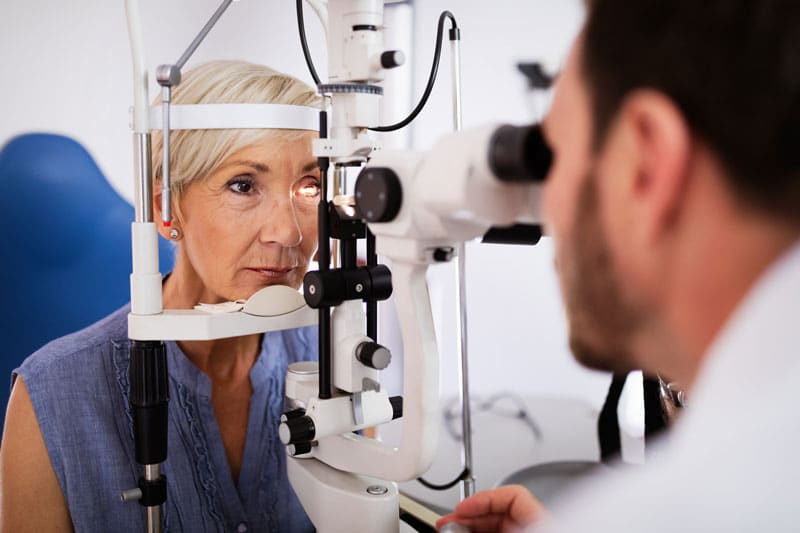
You’re squinting at your phone again, thinking it’s just the lighting. Later, your eyes feel dry, and your vision is a little blurrier than usual, but you brush it off. Between work, family, and everything in between, there’s barely time to schedule a checkup, let alone worry about your eyes. Sound familiar? It’s a common scenario—and a key reason behind the rising concern over vision loss in women.
Several factors uniquely impact women’s eye health, from hormonal changes to lifestyle demands and underlying health conditions. In this article, we’ll explore the reasons behind this disparity and what women can do now to protect their vision for years to come.
Why More Women Tend to Suffer Vision Loss Than Men
Many vision problems are age-related, such as cataracts and macular degeneration. Since women tend to live longer than men, it’s quite common to see women suffer from vision loss as they age.
Next to age, vision problems can also arise from hormonal issues. To illustrate this point, dry eye syndrome is more common after menopause, affecting over 3.2 million American women who are middle-aged and older.
Autoimmune diseases like multiple sclerosis, lupus, and rheumatoid arthritis affect women three times more than men. Vision issues are one of the serious side effects of this condition. Women tend to look after the well-being of their family, to their own detriment. As a result, women tend to overlook their own health, including their vision, when taking care of their families.
A sudden surge in hormones during pregnancy may result in changes in vision. These include dry eye, refractive errors, diabetic retinopathy, retinal detachment due to high blood pressure, and puffy eyelids. While most of these conditions are temporary and will disappear post-delivery, expectant women should be aware of the signs and symptoms indicating a serious problem.
Quick Guide to Optimum Vision For Women
Remove contact lenses before taking a bath, shower, swimming, or any activity that involves water getting in your eyes. If water comes in contact with your eyes while wearing them, dispose of them and buy a new pair. This will help prevent acanthamoeba keratitis, which results from exposure of your contacts and eyes to water that is contaminated with the amoeba Acanthamoeba.
Women are more likely to wear cosmetic contact lenses. Vision problems can arise, though, when these lenses are bought without a prescription at beach shops, boutiques, and non-professional stores. If you wish to wear these fashionable lenses, it is always best to consult with a licensed eye care professional first. If possible, do not wear contact lenses without the supervision of an eye care doctor. Also, never trade or share your contact lenses with your girlfriends.
Wash your hands first before putting on eye makeup. Keep all applicators clean and in good condition. If possible, do not reuse old applicators and opt for disposable types instead. Most importantly, do not ever sleep with your eye makeup on.
Most women carry makeup in their purses or leave it inside the car. Kick this habit as soon as you can because extreme temperatures can break down the preservatives and allow bacteria to grow. You do not want to dab bacteria into your eyes.
Improving Visions – Reducing Bad Habits
Lifelong good nutrition is a key influencer of good health, including your vision. Dark green vegetables have been shown to potentially reduce the risk of age-related macular degeneration (AMD). While kale may be the first leafy green on your mind, here’s a list of other leafy greens you can include on your next trip to the supermarket.
Go cold turkey. Apart from reducing your risk of a whole host of diseases, such as cancer and respiratory issues, smoking is the most important modifiable risk factor for AMD development and progression.
Eye Health for Women – Combating Eye Disease
Expectant women with diabetes should see their eye doctor during pregnancy due to a higher risk of developing diabetic retinopathy.
Poor blood sugar control and elevated blood pressure can increase the risk of blindness due to cataracts or diabetic retinopathy. Aim to keep your blood pressure and blood sugar levels within the normal range by monitoring your health numbers and maintaining a healthy lifestyle.
Wear proper eye protection if your work involves high risks of eye injury.
Visit your licensed eye care doctor for a dilated eye exam. Diabetic retinopathy and macular degeneration can be detected during a comprehensive dilated eye exam, which allows your doctor to check for leaking blood vessels, unusual changes in the lens, and damage to nerve tissues.
Get Help With Vision Loss Today
Vision loss in women is more than just a side effect of aging—it’s a serious health issue that deserves attention and action. By understanding the risks and staying proactive with regular eye exams, good nutrition, and overall health management, women can take meaningful steps to preserve their sight. Your vision is vital—not just for seeing the world clearly, but for navigating life with confidence. Prioritize it today by scheduling an appointment.

